The government should also open its borders to Rohingya fleeing sectarian violence and abuses by Burmese security forces in Arakan State in western Burma.
In late July 2012, the Bangladesh government ordered three prominent international aid organisations - Medecins Sans Frontieres (Doctors Without Borders), Action Contre la Faim (Action Against Hunger), and Muslim Aid - to cease providing assistance to Rohingya living in Cox's Bazaar and surrounding areas.
''The Bangladeshi government is trying to make conditions for Rohingya refugees already living in Bangladesh so awful that people fleeing brutal abuses in neighboring Burma will stay home,'' said Bill Frelick, director of the Refugees Program at Human Rights Watch.
''This is a cruel and inhumane policy that should immediately be reversed. The government should be welcoming aid organisations that provide life-saving aid, not shutting down their programs to assist refugees.''
Since mid-June, Bangladesh authorities have admitted to forcing back at least 1300 Rohingya trying to flee to Bangladesh, though the actual number is likely substantially higher, Human Rights Watch said.
Rohingya are escaping killings, looting, and other sectarian violence in Arakan State, as well as abuses by the Burmese authorities, including ethnically motivated attacks and mass arrests.
The Bangladesh government contends that the presence of aid groups in Cox's Bazaar encourages Burmese Rohingya to come to Bangladesh, and that it cannot afford to host them.
The government accused the three aid groups of encouraging the Rohingyas' flight by providing medical and other assistance. It also raised concerns about criticisms of Bangladesh in the international media.
However, as a party to the International Covenant on Economic, Social and Cultural Rights, Bangladesh is prohibited from denying those within its borders, including refugees and asylum seekers, access to food and healthcare, among other protections.
The three aid organisations provide water, healthcare, sanitation, and other basic assistance to Rohingya refugees and asylum seekers in Bangladesh.
Approximately 30,000 Rohingya who are officially recognised refugees are living in two camps; 40,000 who are unregistered live in a makeshift refugee camp, and the remaining 130,000 live in surrounding areas.
All of the settlements are squalid and overcrowded.
The conditions for the Rohingya include shortages of food leading to widespread malnourishment among the children, a lack of clean water and sanitation resulting in disease, and restrictions on movement coupled with extortion and human rights abuses.
These conditions have created an ongoing humanitarian emergency in the official and unofficial camps, and surrounding areas.
Seasoned aid workers have told Human Rights Watch that the conditions in the makeshift camps for Rohingya are among the worst they have seen anywhere in the world.
''Bangladesh authorities are placing the lives of Rohingya refugees at grave risk by forcing aid groups to stop their feeding and health programs,'' Frelick said.
''It is unthinkable that the government would actively attempt to make the terrible conditions faced by Rohingya even worse by stopping aid from reaching them.''
The sectarian violence in Arakan state broke out in early June between ethnic Arakan Buddhists and both Rohingya and non-Rohingya Muslims, displacing over 100,000 people.
Burmese authorities failed to protect both communities from violent mobs and committed killings, beatings, rape, mass arrests, and other abuses against Rohingya, in some cases alongside armed Arakan.
United Nations agencies still lack full and unfettered access to affected areas of Arakan State.
On August 4, following a visit to affected areas, the UN special rapporteur on human rights in Burma, Tomas Quintana, described the human rights situation in Arakan State as ''serious.''
As a result of the violence and abuses, thousands of Rohingya attempted to flee to Bangladesh for safety.
But they have been met with a sealed border and a Bangladesh government policy of pushbacks that constitute refoulement, forced return, in violation of international law.
Images and video show Bangladesh border guards forcing pleading Rohingya back to sea in tiny, barely seaworthy boats.
On June 18, a Human Rights Watch researcher witnessed the Bangladesh coast guard push nine boats into Burmese waters from the jetty in the port town of Shah Pori Deep.
Senior officers in the Bangladesh Border Guards have told Human Rights Watch they have pushed back as many as 1300 people.
In a July 28 media interview, Prime Minister Sheikh Hasina of Bangladesh disavowed any responsibility for the Rohingya, claiming the responsibility was with the Burmese government.
''Bangladesh is already an overpopulated country,'' Hasina said. ''We cannot bear this burden.'' She denied that Rohingya were being forced back to Burma, saying,
''It isn't true, [the border guard force] didn't force them. They persuaded them that they should go back to their own country, and they went back.''
In the same interview, she added the Burma authorities are ''creating a congenial atmosphere'' and ''providing all the [needed] assistance and everything'' to the Rohingya.
In June, the Bangladesh foreign minister, Dipu Moni, had told a news conference in Dhaka that, ''It is not in our interest that new refugees come from Myanmar [Burma].''
While Bangladesh is not a party to the 1951 Refugee Convention or its 1967 Protocol, customary international law establishes the obligation of governments to respect the principle of nonrefoulement, which holds that refugees should not be forcibly returned to a place where their lives or freedom would be threatened.
Bangladesh also is a party to several treaties - including the Convention against Torture, the International Covenant on Civil and Political Rights, and the Convention on the Rights of the Child - that provide that no one, including refugees and asylum seekers, should be returned to a place where they face a genuine risk of being subjected to torture.
The Bangladesh government should immediately allow humanitarian agencies, human rights organisations, and the media free and unfettered access to the border areas, Human Rights Watch said.
Donor governments and UN agencies should be ready to provide assistance and other support for the refugees and asylum seekers.
They should also press the Burmese government to fully respect the rights of the Rohingya, including ensuring equal treatment under Burma's citizenship law, which effectively denies them Burmese citizenship.
''Bangladesh's refugee camps are no tourist resorts and the government should recognise that the Rohingya arriving are fleeing Burma for their lives,'' Frelick said.
''Rather than meeting its international obligations by assisting Rohingya who have fled deadly sectarian violence, the Bangladesh government is compounding their suffering.
''It should change its policy and provide temporary protection and allow aid or it will create an even greater humanitarian disaster.''

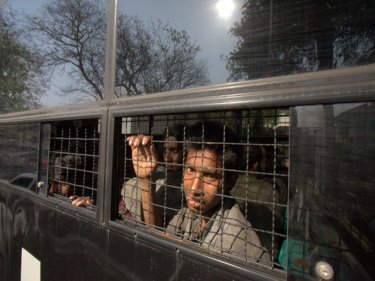
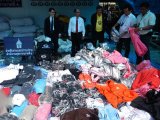


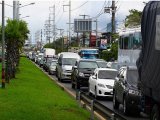

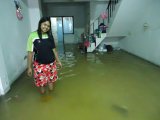
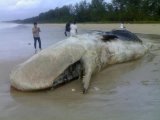


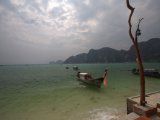
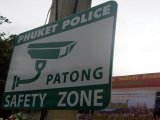




There has to be the right of a country to say no to more refugees. The refugees are taking resources away from the indigeneous population at their own expense. The people pay taxes to support their own cause, not to let refugees live off them. I can sort of understand why Bangladesh has to cut off the aid, once these humanitarian aids come in, they don't just provide for the refugees but they start making demands to the government to provide this and that, and if not *boom* international headlines on how unreasonable the government is.
It's a lose-lose situation for the Rohingyas, they are unwanted by their country, and their demands on Myanmar as per their recent conference is only going to boil their blood - confer citizenship & make reparations? Asking for a mile when I give you a foot, I think.
Posted by May on August 23, 2012 08:52